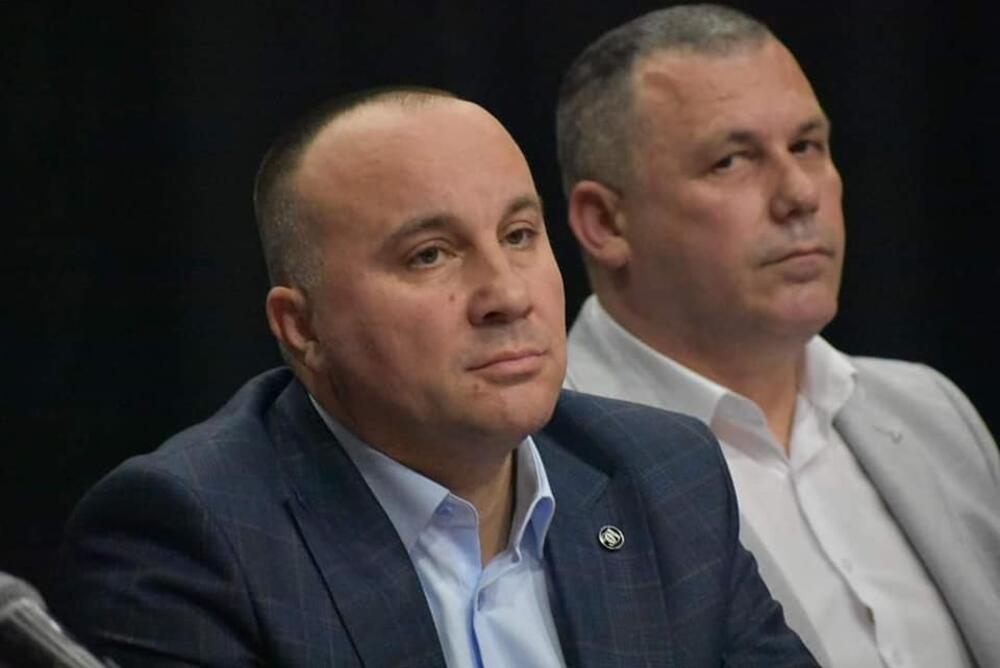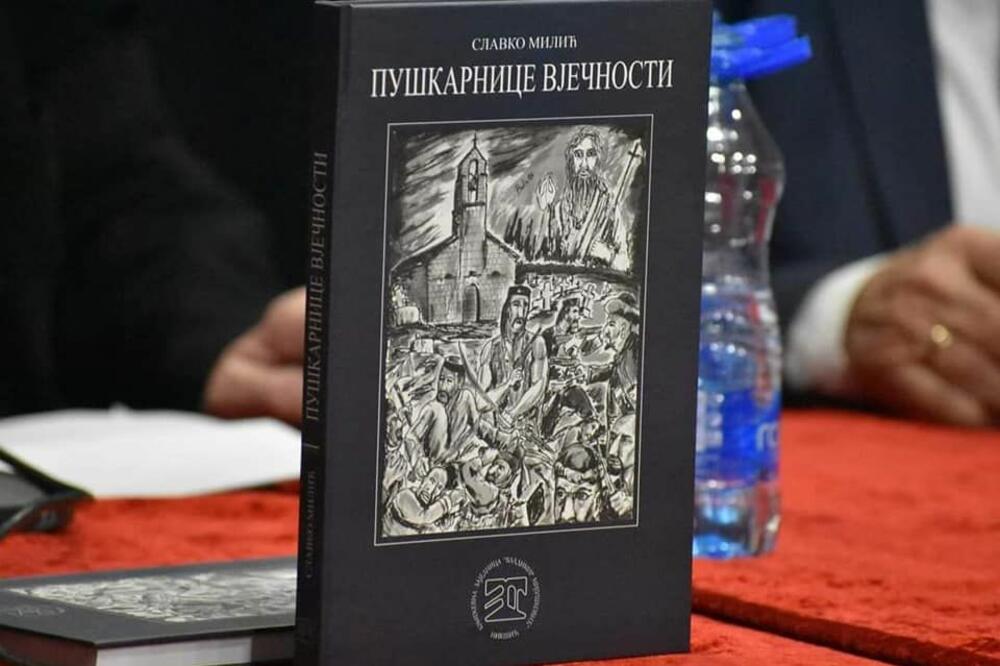Judging by the crowded hall of "Zahumlje" in Nikšić, where people were looking for a place to stand, Slavko Milić from Nikšić showed with his literary debut "Puškarnica večenosti" that he is an author to be reckoned with, and that his work is not just a memorial to his ancestors. but also to all Montenegrins who defended the honor and freedom of their country during the reign of the Ottoman Empire and the Balkan Wars.
"The book best depicts the spirit of a time, of a people that did not allow itself to be bound in chains. Milić described the events of our past in the space of several centuries with the aim of making the audience additionally familiar with just one fact that they should by no means ignore - to see in the true sense of the word the struggle for bare life of our ancestors in those historical moments. when age-old freedom, the Orthodox faith, our script and our customs were defended. This is the main value of this book, in which the author undertook to describe the history of Montenegro and events from our past, which are still being talked about and written about, even today," said the moderator of the evening, Ilija Bajović, M.Sc. , program editor at Zahumlje JU.

The writer Spasoje Bajović, president of the "Vladimir Mijušković" Literary Association, which published Milić's book, said that the author was faced with the challenge of translating certain stories into larger literary creations.
"The common denominator of Milić's stories is the collective suffering and suffering of our people placed in the narrative frame of testimony and memory of one of the most difficult periods in its history. The theme and form of Slavko's stories starts from dramatic human destinies and events that reflect the social, political, traditional, and religious circumstances of the time, they speak of the collective spirit of an endangered people, the relationship between tyranny and good, language and customs, the suffering and resurrection of Montenegrin martyrs through their constant the fight for freedom", said Bajović.
The book contains 11 semantically separate stories, connected into one whole, and the author entrusted the role of narrator and memory to his great-grandfather Stevan Milić.
"The focus of Slavko's story is about the reawakening of our people, about his superhuman journey through horror and Golgotha. He builds the structure of the book through the vision of prominent characters that he includes in the organic fabric of the book, while illuminating its content from different angles, through the depiction of evil and betrayal, through the heroic resistance of our people against the enemy, through the connection between stone, wood and a man who lives in stone torment, eager for justice and normal life," Bajović pointed out.
Dr. Nikola Mijanović, who admitted that he read the collection of stories in one sitting, trying to live everything he read, said that it is hard to believe that the book was written "in such a masterly style" by someone who has the opportunity to publish his work for the first time. , that he "painted" the characters so well, which are not fictional, but real, and that he is not surprised by the use of archaic language, because such a book could not have been written any other way. He particularly referred to the female characters, to the Montenegrins who, as he pointed out, carried the greatest part of the burden and "were higher heroes than those who wore the jacket".
The writer, Miloš Kecojević, pointed out that Slavko Milić is a worthy keeper of the memory of his origins, who through the book goes through the Golgotha of heroes and survives what has already been lived, in order to describe in the most authentic way the time when heroes died for freedom, knowing that death is not the end, but the way to eternity.
"In the example of Milić's work, it is not a matter of scribal passion, but the writing is conditioned by an internal stimulus that found a crucial refuge in one's own subconscious... The author considers it important that the forgiveness of sins represents an outpouring of tenderness that is rare and undesirable from cruel warriors. He also glorifies the opponent, guided by the idea that heroism can only rely on heroism... Raised on the clearest sources of our epic inspiration, Milić also acts in the book, guided by the maxim that good should be answered with good, and evil should be reacted heroically," he said. Kecojević ended his address with a toast that he dedicated to the author and his book, thus congratulating him on his literary debut.
The poet, Snežana Pejović, pointed out that the main heroes are striking characters who carry their destinies both as a burden and as a reward, because what is given to you becomes yours over time and becomes an inseparable part of you, and that Milić's book commemorates the lives of his brothers, but also leaves "a trace for future generations as a model to follow, a pattern characteristic of what comes, but also remains in these areas".
Pejović read an excerpt from the review by Dr. Marijana Terić, who wrote that Milić upgraded the plot from the past with creative imagination
"Writing the confession of the Montenegrin people, Milić immortalized a time and preserved human works from oblivion...The skillful interweaving of history and poetry, reality and fiction, opens up the possibility for the interpretation of different aspects and layers of the literary text... The stories follow the fateful paths of heroes, historical figures , important events from Montenegrin history. Although the main thematic flow follows historical events, there is no strict historical factography. The author gives the work a personal literary liveliness... With his debut, Milić distinguished himself as an author of a specific literary sensibility, with a special talent for oral narration that allows him to return to his roots, to the stone cradle, but also to preserve the Montenegrin literary tradition and Montenegrin oral thought," said Terić. .
The author of "Puškarnica večenosti" pointed out that in the book he went from the general to the particular, from pain to happiness, that he knew he had someone and something to write about, that it was a big challenge for him, and did he answer the challenge well readers will judge.
"The book was created as my personal need to extinguish the revolution, the inspiration and the state of feeling indebted to Bjelica that was smoldering in me. The inner need spread to bring us all back to the beginning in a time of worthlessness and make us know that we owe a debt to our great ancestors. In conceiving the stories, I started from dramatic events from different aspects of time, from different starting points of the terrible days of the past, but I directed all the power of the pen towards one goal - our bright and beautiful country that bled in a long struggle for the time we are spending today", he said. is Milić.
Excerpts from the book were read by the actor Miro Nikolić, while the current youth federal vice-champion, Miko Kecojević, completed the evening with the strings of the fiddle, which, as part of the March repertoire of the Nikšić literary scene, was organized by JU "Zahumlje" and KZ "Vladimir Mijušković".
Bonus video:




